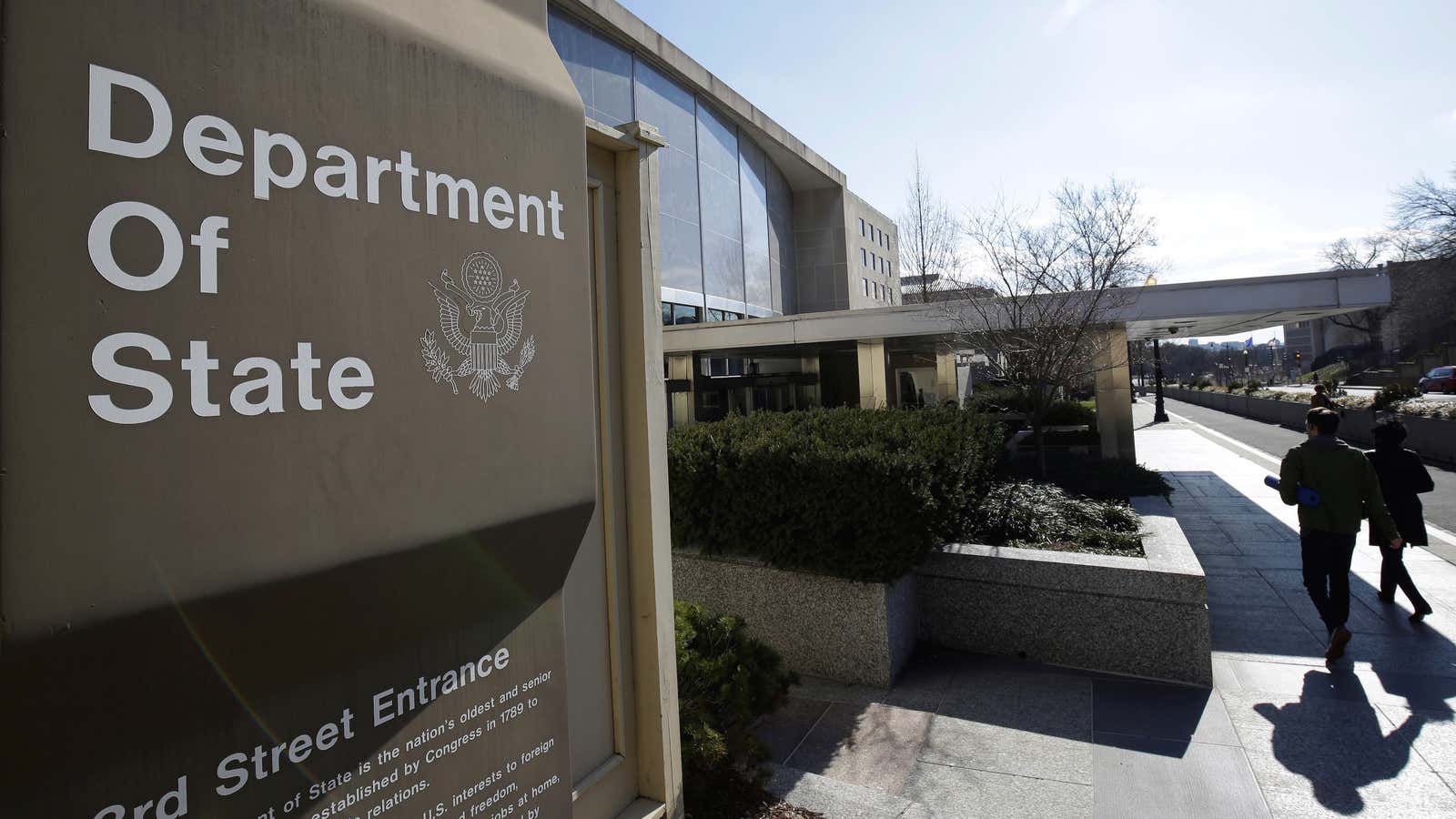President Trump’s supporters may be divided over his airstrike of Syria yesterday, but chances are they remain united about his attempt to impose a travel ban on Syrian and other refugees. Yet, despite his base’s approval for this policy, Trump is facing more lawsuits in his first few months in office than any of his recent predecessors. And most of them arise from the travel ban proposal—on nationals of seven Muslim-majority countries, which he ordered on Jan. 27. At the moment that proposal is enjoined by Derrick Watson, a federal judge in Hawaii. Nevertheless, the lawsuits continue to flow in, with a Yemeni couple in Washington among the most recent to join the fray.
The anonymous pair has filed suit against the president in the US District Court for the District of Columbia, as well as key members of the administration like secretary of state Rex Tillerson and attorney general Jeff Sessions, as part of an attempt to bring two of their five children to the United States. The couple emigrated from Yemen in 2015, seeking asylum in the US, but could only afford to bring three of their children, leaving two sons in Yemen in the care of their grandmother.
Civil war in that country, which has resulted in more than 10,000 civilian deaths, forced the boys and their grandmother to flee across the Red Sea to Djibouti, a tiny East African republic wedged between Somalia, Ethiopia, and Eritrea. But chances are good they will return to Yemen soon—the cost of living in Djibouti is high, and the US State Department has yet to schedule interviews for the boys.
“Our sense is that the consular officials in these affected countries have been struggling with how to address these cases in light of both the travel bans and with the court order,” Charles Blanchard, the couple’s attorney, told Courthouse News. “But the fact is, visas aren’t being processed for whatever reason.”
This may have something to do with a recent order handed down from the State Department to US embassies abroad. A series of diplomatic cables unearthed by Reuters show that the agency has commanded embassies and consulates to impose tougher criteria on certain “population sets” before granting them visas to travel to the US.
“Population sets” is not defined in any of the cables, but human-rights groups speculate the phrase targets individuals of Muslim faith or originating in Muslim-majority countries. Additionally, they accuse the president of creating loopholes through which he might exercise state-sanctioned discrimination against Muslims, despite his initial travel ban being blocked by a federal judge in Hawaii.
“If true, these measures could provide license for discrimination based on national origin and religion,” Naureen Shah, senior director of campaigns for Amnesty International USA, wrote in a letter to secretary of state Tillerson in response to the cable. “They could provide a pretext for barring individuals based on their nonviolent beliefs and expression.”
The March 24 complaint filed by the Yemeni couple in Washington notes these added vetting measures as well: “This additional scrutiny further complicates and delays the Does’ reunification with their children.”
In addition to asking the court to require the State Department to schedule interviews with their sons within 10 days, the couple seeks a nationwide injunction against certain sections of the president’s travel ban and to rescind and replace guidance issued by federal agencies to the diplomatic corps.
Finally, to guard against ongoing informal discrimination against individuals from the Muslim world, they ask the court to compel the government to file monthly reports on the number of visas granted to nationals affected by the ban, as well as explanations of any denials. If the Trump administration aims to pushback against judge Watson’s court order by exploiting bureaucracy, it appears opponents are ready to throw more paperwork their way.
The Departments of Homeland Security, Justice, and State declined to comment on pending litigation.
